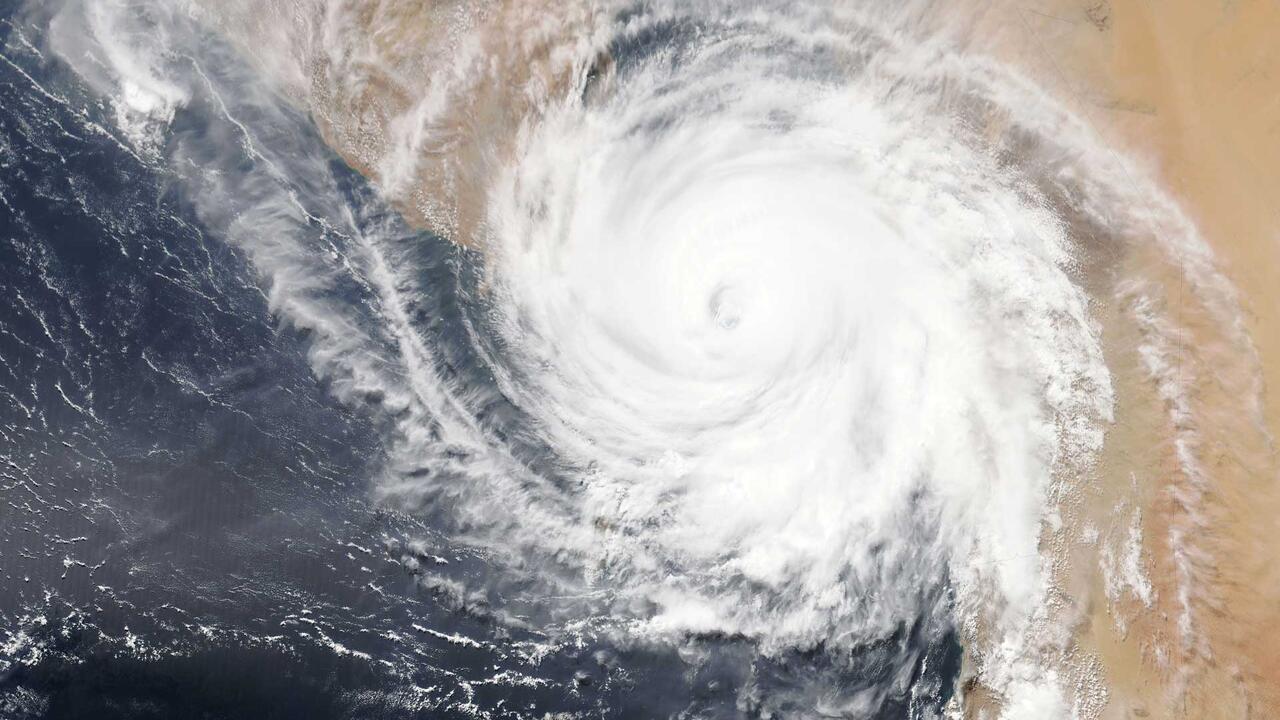
Navigating the new normal
One global issue, four approaches to address it. Waterloo researchers weigh in on how to stem catastrophic climate change.

One global issue, four approaches to address it. Waterloo researchers weigh in on how to stem catastrophic climate change.
By University RelationsClimate change and extreme weather continue to dominate headlines around the world. From devastating fires to unprecedented flooding, shifting to mitigation and adaptation strategies is crucial.
There’s no single approach to solving this global issue. Monitoring and managing complex natural systems requires interdisciplinary solutions.
Waterloo is no stranger to this work, with both the Faculty of Environment and Faculty of Engineering bringing their unique perspectives to action-oriented research and applications, including predictive modelling, natural infrastructure planning, safer transportation systems, clean technology and adaptive architecture, to name just a few.
The financial cost of climate change and extreme weather has more than doubled in Canada over the past decade. If left unchecked, this upward trend will continue.
In response, professor Blair Feltmate of the Faculty of Environment and head of the Intact Centre on Climate Adaptation, works at the intersection of climate change, government policy and the capital markets to develop new national adaptation risk strategies. These initiatives include standards that will limit flood risk at the individual home level and influence new community design.
Feltmate’s interests also extend to helping institutional investors, credit rating agencies and securities commissions better understand why and how they should factor climate change and extreme weather risk into their daily operations.
Learn more about the programs at the Intact Centre on Climate Adaptation.
Today, small and medium-sized enterprises (SMEs) represent 98 per cent of businesses in Canada. They create jobs and boost GDP. They also contribute 200 million tons of greenhouse gasses to our environment every year.
Professor Sarah Burch of the Faculty of Environment, leads TRANSFORM —a global research initiative supported by a $2.5 million Canadian government partnership grant. Spanning eight countries, 11 universities and 15 partners, the objective is to provide tools to help these companies radically improve business operations and impact environmental sustainability.
That’s good news. With the right shifts toward sustainable practices, small businesses will have a massive cumulative effect on the environment, their communities, and the world.
Read more about Sarah’s TRANSFORM initiative.
Climate change continues to affect our world, increasingly challenging us to anticipate and react to often devastating natural events.
As a leader in the use of artificial intelligence and machine learning, Professor Mark Crowley, Faculty of Engineering, puts large data sets from satellites to work, creating predictive models to plan for and react to the impacts of extreme weather.
Crowley’s work will play an important role in effective forest management as government and first responders tackle the growing problems of forest fires and invasive species.
Hear what Mark had to say at the AI For Good Summit in Geneva.
Jean Andrey, Dean of the Faculty of Environment, is the current Chair of the Leadership Council for the Sustainable Development Solutions Network (SDSN) Canada. Working closely with United Nations agencies, multilateral financing institutions, the private sector, and civil society, SDSN’s goal is to mobilize scientific and technological expertise to accelerate problem solving for sustainable development throughout Canada.
By linking Canadian experts to global discussions on sustainable development, and supporting action-oriented research, Andrey’s work will help Canada adopt and implement meaningful environmental policies and sustainable practices nationwide.

Read more
Animated GIFs of shrinking Antarctic ice help people understand the impact of climate change. One ice shelf has lost the equivalent area of Prince Edward Island.

Read more
A Waterloo startup has developed a solution for keeping microfibre pollutants out of our water

Read more
Breakthroughs in big data, alternative fuels and energy storage offer hope for a sustainable future. But the real challenge is social and political – not technical.
The University of Waterloo acknowledges that much of our work takes place on the traditional territory of the Neutral, Anishinaabeg, and Haudenosaunee peoples. Our main campus is situated on the Haldimand Tract, the land granted to the Six Nations that includes six miles on each side of the Grand River. Our active work toward reconciliation takes place across our campuses through research, learning, teaching, and community building, and is co-ordinated within the Office of Indigenous Relations.